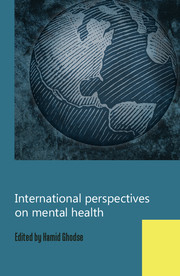Book contents
- Frontmatter
- Contents
- List of contributors
- Preface
- Africa
- Asia
- Australasia
- Europe
- Albania
- Austria
- Republic of Belarus
- Belgium
- Bosnia and Herzegovina
- Croatia
- Czech Republic
- Estonia
- Finland
- France
- Germany
- Greece
- Hungary
- Ireland
- Italy
- Lithuania
- Malta
- The Netherlands
- Norway
- Poland
- Portugal
- Romania
- Russian Federation
- Serbia
- Slovak Republic
- Slovenia
- Spain
- Sweden
- Switzerland
- Ukraine
- United Kingdom
- North America
- South America
- Index
Republic of Belarus
from Europe
Published online by Cambridge University Press: 02 January 2018
- Frontmatter
- Contents
- List of contributors
- Preface
- Africa
- Asia
- Australasia
- Europe
- Albania
- Austria
- Republic of Belarus
- Belgium
- Bosnia and Herzegovina
- Croatia
- Czech Republic
- Estonia
- Finland
- France
- Germany
- Greece
- Hungary
- Ireland
- Italy
- Lithuania
- Malta
- The Netherlands
- Norway
- Poland
- Portugal
- Romania
- Russian Federation
- Serbia
- Slovak Republic
- Slovenia
- Spain
- Sweden
- Switzerland
- Ukraine
- United Kingdom
- North America
- South America
- Index
Summary
The Republic of Belarus (ROB) covers 207 600 km2 and has a population of about 10 million (Ministry of Statistics and Analysis, 2005). It was a member state of the former Soviet Union until it gained independence in 1991. Belarus is located between Poland, Lithuania and Latvia in the west, Russia in the east, and Ukraine in the south. Seventy-two per cent of the population live in an urban environment and 28% in rural areas. The average life span for men is 63 years and for women 75 years (Ministry of Public Health, 2005).
Mental health policies and programmes
Historically, psychiatry in the ROB has been strongly influenced by the classical Russian–German school of thought. This implied a biologically oriented approach and an emphasis on hospital in-patient treatment. Over the past 10 years there has been a dramatic shift in ideology, views, priorities, legislation and care models in psychiatry in several former Soviet republics. Many of these countries have welcomed modern Anglo-Saxon approaches to mental health, but have implemented them to varying degrees. In the ROB, ICD–10 (World Health Organization, 1992) was officially introduced in 2002.
Mental healthcare is provided by the Health Service under the auspices of the Ministry of Public Health. The Health Service is funded by the state through general taxation. The country is in the World Bank's lower-middleincome group. The proportion of gross domestic product allocated to the health budget is 5.6%. The per capita total expenditure on health is $464 (all prices here are reported in international dollars, i.e. after adjustment for purchasing power parity), and the per capita government expenditure on health is $402 (World Health Organization, 2005).
There is no private psychiatric system and the state provides psychiatric care free of charge. Psychotropic drugs have increasingly been used since the early 1960s and are the main component of treatment today. In accordance with mental health legislation, people with schizophrenia, epilepsy, bipolar affective disorder and other psychiatric illnesses must receive their medication free of charge. For example, typical antipsychotics and some early atypicals, such as clozapine and sulpiride, are widely and freely available to patients. In recent years, one of the second-generation antipsychotics, risperidone, has also become available.
- Type
- Chapter
- Information
- International Perspectives on Mental Health , pp. 273 - 277Publisher: Royal College of PsychiatristsPrint publication year: 2011



